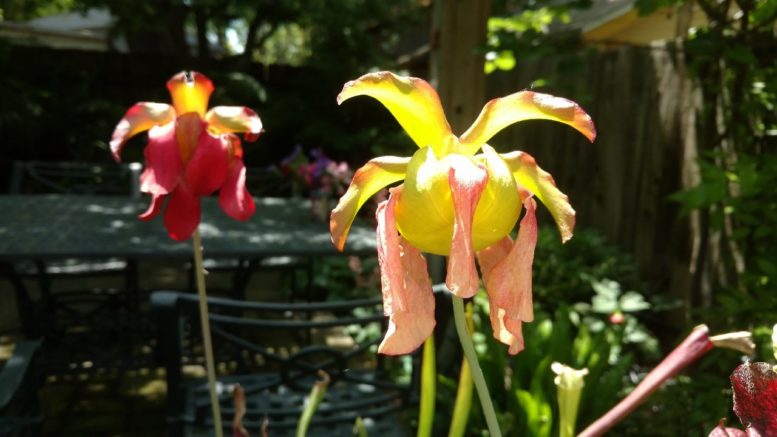Sacramento’s popular carnivorous plant show moves to Father’s Day weekend
Who doesn’t love a flower that gobbles up bugs? That’s part of the allure of carnivorous plants.
“Our stuff is a little bizarre, a little different,” said Eric Trygg, past president of the Sacramento Bromeliad and Carnivorous Plant Society. “People love the idea of bug-eating plants.”
This weekend, the club will present its 49th annual show and sale at Shepard Garden and Arts Center in McKinley Park. It marks the first time this popular event will be held on Father’s Day weekend.
The show “was always the last weekend in July – and hotter than hell,” Trygg said. “That’s wildfire season and the last couple of years, there was so much smoke in the air, people were told to stay inside. That’s also the last weekend of the State Fair, so we had that conflict, too.”
So the club made the move when the dates became available at Shepard Center, Sacramento’s hub of club activity. Plus, Trygg said, carnivorous plants make great gifts for dads.
Why do people gravitate towards these plants?
“They visualize violence or something out of ‘Little Shop of Horrors,’” said Trygg. (Remember Audrey, the man-eating houseplant?)
“There’s a mystique about these plants,” he added. “They’re beautiful; they’re weird. People think of Venus flytraps, but there are actually more than 650 varieties of carnivorous plants including some native to California.”
Carnivorous plants always have had a special mystique.
“When explorers and missionaries discovered these plants [often in exotic places], they came up with stories about plants eating babies or whole monkeys,” Trygg said.
California’s native cobra lily and other pitcher plants have found new popularity as cut flowers. “Farmers can earn $40,000 an acre growing pitcher plants,” Trygg said.
But it’s curiosity that brings most newcomers to this plant show.
“The first thing kids ask me is always, ‘Will it eat my finger?’” Trygg said. “The first thing adults ask, ‘Will it eat mosquitoes?’”
No fingers, but lots of mosquitoes, flies and more. The captured insects break down inside the plant, releasing nutrients. “They’ll eat anything they can catch,” Trygg said. “They’re pigs. You never have to feed them; they feed themselves.
“Look inside a pitcher plant and you’ll see all these bug carcasses and black goo [from decaying insects]. It’s kind of gross, but kids love it.”
And that fascination from younger generations strengthens the club, Trygg said.
“We’re one of the few garden clubs that attracts young people,” he said. “We have that advantage over begonias or African violets, for example. If your club doesn’t get new blood, it dies.”
Just like a pitcher plant in need of flies.
Event details
49th annual Sacramento Bromeliad and Carnivorous Plant Show and Sale
10 a.m.-4 p.m. Saturday and Sunday, June 15 and 16
Shepard Garden and Arts Center, 3330 McKinley Blvd., Sacramento
Find hundreds of unusual and rare exotic plants on display and for sale. Admission and parking are free.






Be the first to comment on "These plants feed themselves"